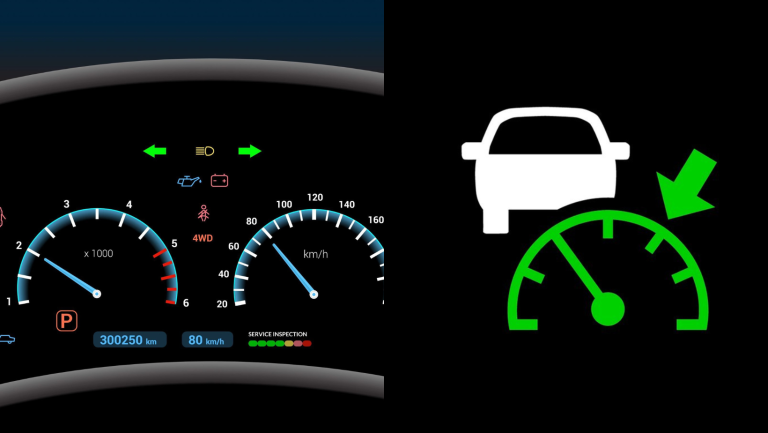Car AC Smells like Vinegar: Why it Happens
It’s happened to all of us at least once: you’re driving around in your car and suddenly you notice a strange, yet familiar acrid smell radiating out of the vents and blowing into your car: vinegar.
Have you ever wondered what exactly is causing that smell? Well, the number one reason this tends to happen is because of moisture getting trapped in your car, which can come from both over- and under-use of your vehicle. Other things that can cause this problem include mold or bacteria buildup, damaged drain tubes, gas leaks, or other air-conditioning system malfunctions.
In this article, we’ll go over the top reasons your car is torturing you with that foul odor and what you can do yourself to fix these issues. As well, we’ll attempt to cover other issues that may be causing your vehicle to emit different, but still rather unpleasant smells.
Table of Contents
- General Causes
- Dirty Air Vents
- Excessive Condensation
- Dirty/Clogged Air Filters
- A Moldy Evaporator Coil
- A Broken Catalytic Converter
- A Worn Fuel Filter
- Old Transmission Fluid
- A Gas Leak
- A Battery Acid Leak
General Causes
Here’s a general list of problems that could be causing your vehicle to emit a strange smell:
- Dirty air vents
- Excessive condensation in your condensation pan
- A dirty or clogged air filter
- A moldy evaporator coil
- A broken catalytic converter
- A worn fuel filter
- Old transmission fluid
- A gas leak
- Leaking battery acid
Some of these problems are simple to fix yourself, while others may need the attention of a qualified mechanic or other professional to remedy the situation.
In the following sections, we’ll discuss each of these topics more in-depth to help you narrow down what’s causing that vinegar stench in your car!
Dirty Air Vents
The leading cause of that weird smell in your car is dirty air vents. To narrow it down further, however, you may have to do a little investigative work.
If you find that the smell goes away after you turn off your air conditioning, then it may be an issue with your actual AC.
However, if the vinegar smell remains after your AC is turned off, the most likely culprit is often mold that has formed in the vents in the cabin as a result of dust or leaves that have accumulated over the years.
If the problem is with your vents (i.e. the smell lingers after the AC is off), then the fix is usually pretty simple and can be done yourself, with cleaning out your vents being known to fix the problem immediately. However if you find the smell goes away when the car is off, then you may need to take it to a mechanic so they can have a closer look at it.
Excessive Condensation
Another problem that could be causing your car to smell like vinegar is excess condensation. In your vehicle, the condensate drain pain is responsible for catching the humidity and excess condensation left over from warm air from your engine passing through the evaporator coils.
The collected drippings are then directed into the PVC condensate drain pipe and then usually get directed outside your vehicle cabin.
However, if your car is experiencing issues with its own drain pain, the drippings will overflow from the pan and cause the moisture that would normally be directed outside of the cabin to form on the walls inside your vehicle instead, leading to that unpleasant vinegar smell.
Dirty/Clogged Air Filters
If dirty vents are the leading cause of the vinegar smell in your car, then dirty air filters are likely the second leading cause. In a similar way to dirty vents, the sour scent in this situation is usually due to an accumulation of organic material on your air filter.
Mold and bacteria, when left unchecked, have the perfect environment to grow from the heat and moisture produced by the AC in your car. This environment, coupled with the dirt, dust, and dead skin cells that accumulate over time, can begin to cause mold to grow on your filter, causing them to emit that horrible smell when the air runs through the vents and into your cabin.
Fortunately, this problem is also generally pretty easy to remedy, with the replacement of your cabin air filter known to fix the problem immediately.
A Moldy Evaporator Coil
Unlike most of the items in this list that spring from slight neglect of your vehicle from use over time, this particular problem usually occurs when your car hasn’t been used for a while.
When you leave your car sitting untouched for prolonged periods of time in your garage, dirt, dust, and moisture can start to accumulate on the evaporator coil and fins of your car–making it the perfect breeding ground for mold.
If this turns out to be the problem you’re facing with your vehicle, your car has likely been throwing up red flags to get you to notice for quite some time before the vinegar smell first appeared.
If you’ve also experienced breakdowns of your AC, have had to change your filters more frequently than you think you should, or have noticed any unusual battery drainage, in addition to the weird smell, then it’s very likely your evaporator coil and fins have already collected a fair amount of mold and should be taken in to your mechanic.
A Broken Catalytic Converter
If you wouldn’t quite describe the smell in your car as vinegar but are still noticing a foul– almost rotten–smell, it’s very possible that your catalytic converter is on the fritz.
The catalytic converter is a part of your car’s exhaust system that works to reduce pollution by helping to convert your car’s emissions from burning gasoline into gas that isn’t harmful. When working properly, this converter changes hydrogen sulfide from the gasoline in your vehicle into sulfur dioxide, which has no odor and is harmless to humans.
When the converter is failing, however, the unburnt fuel that the converter will then leave behind will not get converted and, thus, will begin to contribute to the vinegary smell.
A Worn Fuel Filter
Fuel filters serve as the first line of defense in your vehicle against dirt and rust particles that may be present in gasoline from causing unnecessary damage and wear and tear on your engine.
When working correctly, it also helps other components of your vehicle (like the fuel pressure sensor and the catalytic converter) to help minimize harmful gas emissions.
When damaged or worn down, however, the filter starts to fail to fully eliminate these impurities from the gasoline which may then lead to sulfur deposits on your catalytic converter and ultimately that foul, rotten egg-like smell.
Old Transmission Fluid
No doubt one of the easiest fixes on this list, old or stale transmission fluid is often also a leading cause of strange and unpleasant smells coming from your vehicle.
Skipping on regular flushes of your transmission fluid during maintenance checks on your vehicle can then result in that fluid leaking into other systems within your vehicle, eventually leading to that sulfuric scent coming from your vents.
This problem can be fixed by simply flushing and replacing your transmission fluid.
A Gas Leak
Most fuel types on the market today have an additive in them called methanethiol. This additive is mixed with various types of fuel to give it a detectable sulfuric smell that usually isn’t noticed inside the vehicle of your car unless you’re experiencing some sort of gas leak.
While definitely not a vinegary smell, the scent of methanethiol is very easily detectable by humans–and if you’re smelling this in the cabin of your car, then you may be dealing with a gas leak and should try to take your car into the mechanic’s as soon as possible to avoid any disastrous consequences.
A Battery Acid Leak
While definitely not as common as most of the other problems on this list, leaking battery acid may well just be one of the most dangerous causes of an unpleasant smell in your car.
Your car battery may be leaking for several reasons, from general wear and tear from use or as the result of a car accident. If you live in an area that is known for being particularly cold in the wintertime and warm in the summer months, your battery may start leaking because of the constant swelling and shrinking it goes through with the seasons.
As the battery continues to cycle back and forth with the seasons, cracks can begin to form in the battery casing, which can then start to leak acid into your car, causing a safety hazard for both you and the environment.
If you think the strange smell in your car is due to a battery acid leak, you should take your car to the mechanic’s as soon as you can, as eventually a leak, if left untreated, will cause your car to stop working completely.
Conclusion
As you can see, there are a lot of possible causes of that weird vinegar smell that’s coming from your AC. Some of these issues are easily fixable, like replacing your cabin air filter, and can be done yourself at home, while some others are a little more complicated and may require a professional’s help to diagnose and treat accurately.
If you’re finding that your car is producing a strange vinegar or sulfuric smell lately, then it’s very likely something is off with your vehicle—but hopefully, this article has helped to guide you towards diagnosing and getting it fixed so you can get back to driving safely and comfortably.







